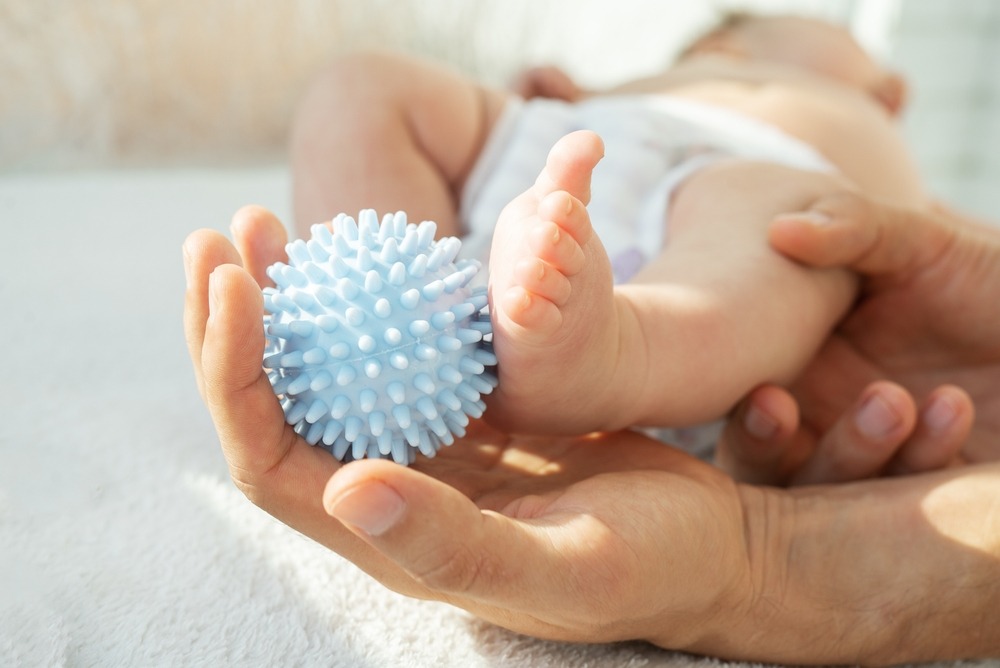Frank Lloyd Wright, the renowned architect, once said, “The way a structure is to be used determines the way it gets shaped.” Interestingly, this concept extends beyond buildings and architecture to the human brain—particularly in its early stages of development. Just as a structure is shaped by its purpose, the young, plastic brain of a neonate is shaped by its interactions with the world. The brain’s plasticity allows it to form and reshape neural connections through repeated experiences, eventually solidifying these pathways into its structure.
A person’s nature is influenced by two primary factors: genetics (nature) and environmental inputs (nurture). While we may not have control over the genetic blueprint we inherit, the nurturing environment we provide plays a significant role in shaping an individual’s behavior, responses, and personality.
One of the earliest and most profound ways to nurture a neonate is through touch.
The Language of Touch
The first language a neonate understands is not spoken words but the language of touch. Long before they can perceive the nuances of toys or colors, neonates respond instinctively to being held, cuddled, talked to, and soothed through skin-to-skin contact. They are also drawn to black-and-white patterns and geometric shapes, but touch remains the most powerful sensory experience.
The skin, being the largest sensory organ, becomes the medium for conveying security, love, and comfort. The type and quality of touch a neonate experiences can have profound impacts on their emotional well-being and stress regulation. Positive, calming touch stimulates the release of oxytocin, often referred to as the “love hormone.” This hormone helps the child feel secure, reduces anxiety, and fosters a sense of attachment and trust.
The Role of Touch in Transitioning from the Womb
In the womb, the fetus is cocooned in a protective environment—surrounded by a thick elastic sheath and buoyed by amniotic fluid. All its needs, from nutrition to oxygen, are effortlessly met. Upon birth, however, this nurturing environment is abruptly replaced by a world where the neonate must breathe, suckle, and respond to gravity—all entirely new experiences.
This overwhelming transition makes touch an essential tool for easing the neonate into their new reality. Swaddling, for example, provides boundaries reminiscent of the womb, offering comfort and security. However, it is essential to recognize that not all neonates respond the same way. Some may dislike swaddling, reflecting the individuality that caregivers must respect and honor.
The Importance of Positive Touch
Not all touch is created equal. For neonates, very light touch can be perceived as pain, while firm, gentle, and secure touch reassures them. Positive touch, which reduces stress and anxiety, lays the foundation for the child’s ability to self-regulate emotions and reactions as they grow. This ability to manage stress effectively will play a crucial role in their long-term emotional and mental well-being.
Respecting Individuality
Caregivers must understand and respect the unique preferences of each child. While one neonate may be soothed by a particular type of touch, another may find it distressing. Recognizing these differences and adapting accordingly fosters trust and helps the child develop a secure attachment.
The Impact of Nurturing Touch
Touch has far-reaching effects beyond infancy. When a neonate experiences consistent, positive touch, it strengthens their ability to regulate emotions, build relationships, and navigate the challenges of life. By reducing their stress and anxiety through nurturing touch, caregivers not only comfort the child but also support the development of a resilient and adaptive brain.
In conclusion, just as an architect carefully designs a structure based on its purpose, caregivers have the profound responsibility of shaping the developing brain of a neonate through nurturing interactions. Touch, the first language of life, holds the power to provide security, calmness, and emotional growth. By understanding and respecting a child’s individuality and needs, we set the foundation for a lifetime of positive development and well-being.


